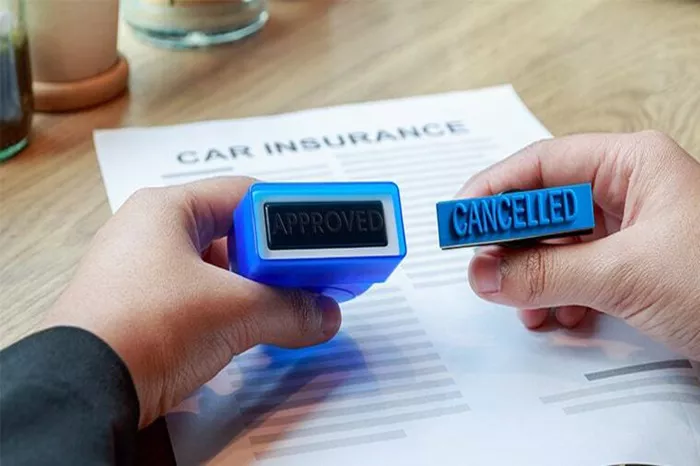Owning an RV provides the freedom to explore the open road, whether you’re embarking on weekend getaways or living in your RV full-time. However, before you hit the road, it’s crucial to consider insurance. General RV insurance is one of the most common types of coverage for RV owners. But what exactly does general RV insurance cover, and do you need it?
In this article, we will break down the details of general RV insurance, explain what it includes, and help you understand how it can protect your investment. Whether you’re new to RV ownership or looking to update your coverage, understanding general RV insurance is a vital step toward safe and enjoyable travel.
What is General RV Insurance?
General RV insurance is a type of vehicle insurance designed specifically for recreational vehicles (RVs). Unlike standard auto insurance, which covers only the vehicle, general RV insurance offers more comprehensive coverage that includes both the vehicle and the contents of the RV. It’s essential for RV owners, as it protects against accidents, theft, damage, and other unexpected situations that may arise while on the road.
General RV insurance typically includes a combination of coverage types that can be customized based on the owner’s needs. It can protect you from financial loss in case of accidents, damages caused by natural disasters, theft, vandalism, and more.
Why Do You Need General RV Insurance?
RV insurance is essential for several reasons:
Legal Requirements: In most states, RVs are classified as motor vehicles and, like cars, are subject to minimum liability insurance requirements. Failing to meet these legal requirements could result in fines or the suspension of your RV’s registration.
Protection for Your Investment: RVs are a significant investment, often costing tens of thousands of dollars. Having insurance ensures that you’re financially protected in case of an accident or other unforeseen event, helping you avoid significant out-of-pocket expenses.
Peace of Mind: When you’re on the road, having the right insurance gives you peace of mind. Whether you’re on a short road trip or a long cross-country journey, knowing you’re covered in case of an accident or emergency can help you enjoy your travels without worry.
Types of Coverage in General RV Insurance
General RV insurance typically includes several coverage options, each designed to protect different aspects of your RV and its use. The exact coverage you choose will depend on how often you use your RV and your specific needs. Let’s explore the most common types of coverage in general RV insurance.
1. Liability Coverage
Liability coverage is one of the most important types of RV insurance, and it’s mandatory in many states. This coverage protects you if you’re at fault in an accident that causes injury or damage to another person or their property.
Bodily Injury Liability: This part of the coverage helps pay for medical expenses, lost wages, and other costs if someone is injured in an accident that you caused.
Property Damage Liability: This helps pay for repairs or replacement of property that you damage in an accident.
2. Collision Coverage
Collision coverage helps pay for repairs or replacement of your RV if it is damaged in a collision with another vehicle or object, regardless of who is at fault. This type of coverage can be especially valuable if your RV is a newer model or has a high value.
3. Comprehensive Coverage
Comprehensive coverage, also known as “other than collision” coverage, protects your RV against damage that isn’t caused by a collision. This could include:
Theft
Vandalism
Fire damage
Hailstorms
Animal damage (e.g., hitting a deer)
This coverage helps pay for repairs or replacement if your RV is damaged in any of these situations.
4. Personal Injury Protection (PIP)
Personal Injury Protection (PIP) provides coverage for medical expenses and other costs related to injuries sustained in an accident, regardless of who is at fault. PIP covers things like:
Medical bills
Rehabilitation
Lost wages
Childcare costs
In some states, PIP is mandatory, while in others, it’s optional. It’s important to understand the requirements in your state and whether you need this type of coverage.
5. Uninsured/Underinsured Motorist Coverage
If you’re in an accident caused by someone who doesn’t have enough insurance or no insurance at all, uninsured/underinsured motorist coverage can protect you. This coverage helps pay for medical expenses, repairs, and other costs that the at-fault driver’s insurance would have covered if they had adequate insurance.
6. Roadside Assistance Coverage
Roadside assistance is an optional add-on to your RV insurance policy. This coverage provides help when you experience a breakdown or other emergency while on the road. Some common services covered under roadside assistance include:
Towing services
Flat tire changes
Battery jumps
Fuel delivery
Lockout assistance
For RV owners who travel long distances, this coverage can provide peace of mind, knowing that help is just a phone call away.
7. Full-Timer Coverage
Full-timer coverage is designed for RV owners who live in their vehicles full-time. It functions similarly to homeowners insurance and provides coverage for:
Personal property inside the RV (e.g., furniture, electronics, clothing)
Liability for living in your RV
Loss of use if your RV becomes uninhabitable due to damage
If you live in your RV full-time, full-timer coverage is an essential addition to your general RV insurance policy.
8. Contents Coverage
Contents coverage protects the personal items inside your RV. If your belongings are damaged, lost, or stolen, contents coverage helps replace them. This coverage is similar to renters insurance, but it applies specifically to the items inside your RV.
For RVers who travel with valuable items or who live in their RVs full-time, contents coverage is a good investment.
How to Choose the Right General RV Insurance
Choosing the right RV insurance can be a challenge, but it’s important to find a policy that provides the coverage you need at a price you can afford. Here are some factors to consider when selecting your general RV insurance:
1. How Often Do You Use Your RV?
If you use your RV year-round, you may need full coverage, including liability, collision, comprehensive, and roadside assistance. However, if you only use your RV for occasional trips, you may opt for a more basic policy.
Full-time RVers often need more specialized coverage, such as full-timer insurance and contents protection. Be sure to assess your usage before making a decision.
2. What Is the Value of Your RV?
If your RV is a significant investment, you may want to opt for higher levels of coverage to protect your vehicle. Older RVs or less expensive models may not require as much coverage, but it’s still important to protect against the risks you face while on the road.
3. What’s Your Budget?
Like any type of insurance, general RV insurance premiums vary based on factors such as the value of your RV, the level of coverage, and your driving history. Be sure to get quotes from multiple insurance providers to find a policy that fits within your budget.
4. Consider Discounts
Many insurance companies offer discounts that can help reduce your premiums. Some common discounts for RV owners include:
Safe driver discounts
Multi-policy discounts (if you bundle your RV insurance with other types of insurance, such as auto or home)
Anti-theft device discounts
Low mileage discounts
Be sure to inquire about available discounts when obtaining quotes from different insurers.
5. Compare Policies
Take the time to compare different RV insurance policies. While price is an important factor, coverage should be your top priority. Look for an insurance provider that offers comprehensive coverage options, excellent customer service, and a reputation for reliability.
How Much Does General RV Insurance Cost?
The cost of general RV insurance can vary widely depending on several factors, such as:
The type, age, and value of your RV
Your driving history
The level of coverage you select
Your location (insurance rates can vary by state)
The frequency of use (whether you use your RV full-time or part-time)
On average, RV insurance can cost anywhere from $300 to $1,500 per year, with the average premium falling around $500 to $1,000 annually for a standard policy. Full-time RVers or those with higher-value RVs may pay more.
Is General RV Insurance Right for You?
General RV insurance is an essential coverage for anyone who owns and operates a recreational vehicle. Whether you’re using your RV for weekend getaways or as your primary residence, insurance helps protect your investment and provides peace of mind on the road.
When choosing a policy, make sure to assess your needs and consider factors like how often you use your RV, its value, and the level of coverage you need. Compare policies from different providers, and don’t hesitate to ask questions to ensure you get the best coverage for your budget.
Conclusion
General RV insurance is crucial for RV owners, offering protection for both your vehicle and personal property. With various types of coverage available, including liability, collision, comprehensive, and roadside assistance, general RV insurance can be tailored to suit your needs. Whether you’re a part-time traveler or a full-time RV resident, having the right insurance ensures that you’re protected on the road. By understanding your options and carefully selecting a policy, you can enjoy your RV adventures with confidence and peace of mind.
Related topic:
What Does Foremost RV Insurance Coverage Offer You?




















